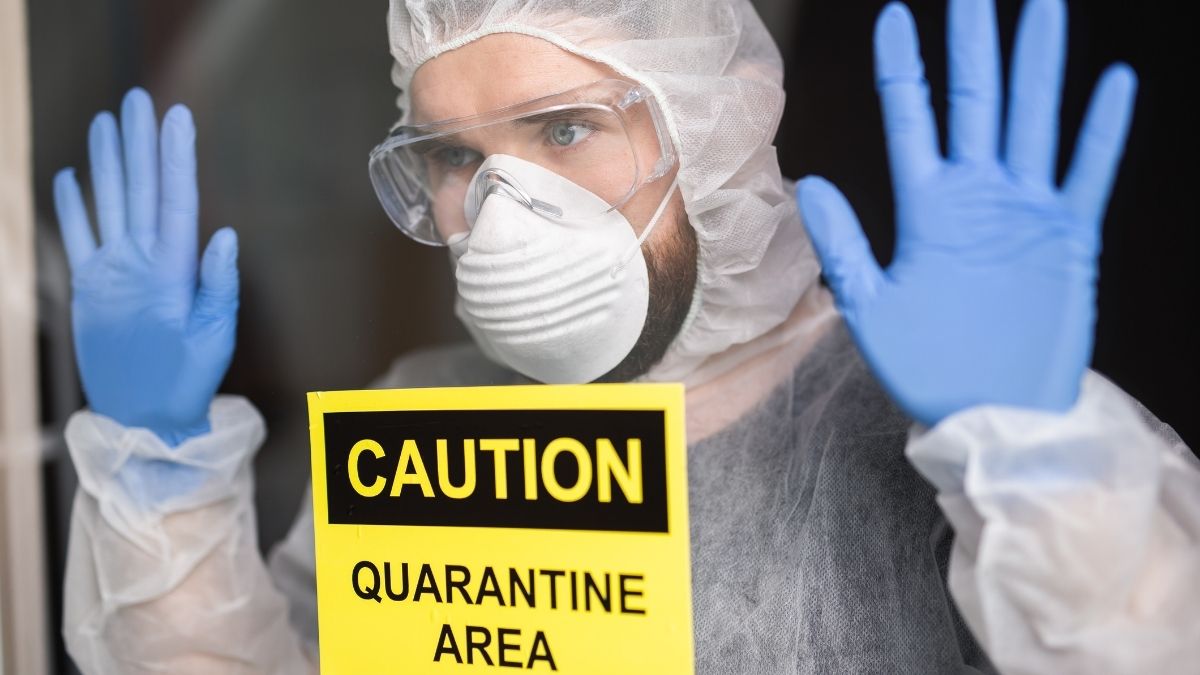The call came at 2 AM – your dad clutching his chest, paramedics rushing in, your family’s world turned upside down.
Now you lie awake at night wondering if you’re next. Heart disease runs in your family. Your grandfather had one. Your uncle too. You feel like you’re walking around with a ticking time bomb in your chest.
Here’s what no one tells you: You’re not doomed by your genes.
Yes, family history heart disease matters. But it’s not a death sentence. The science is clear – 80% of heart attacks are preventable, even if they run in your family.
This guide shows you exactly how heart attack prevention really works. You’ll discover which risk factors actually matter and which ones doctors get wrong. You’ll learn the hidden warning signs most people miss and the advanced tests that can predict problems years before symptoms start.
Most importantly, you’ll get a proven action plan to prevent heart attack naturally. Real strategies that work for real people with real family histories.
Your genes loaded the gun, but your choices control the trigger. It’s time to take that control back.
The “Bad Luck” Myth: Why Most Heart Attacks Are Preventable

“Heart disease runs in my family. There’s nothing I can do about it.”
This is what Sarah thought when her dad had his second heart attack at 55. Her grandfather died of one at 50. She felt doomed.
Sarah was wrong. And if you think the same thing, you’re wrong too.
Here’s the truth: 80% of premature heart attacks are preventable. The World Health Organization proves this with hard data. That means 8 out of 10 heart attacks don’t have to happen.
Yes, your genes matter. But they’re not your fate.
Think of it this way: genetics load the gun, but lifestyle pulls the trigger. You can have heart disease genes and never fire that gun. You control the trigger.
The numbers tell the real story:
- Only 5-10% of heart attacks are purely genetic
- 2.3 million heart attacks happen each year in the US that could be stopped
- Most heart disease comes from what you do, not what you inherited
Your environment beats your genes almost every time. What you eat, how you move, whether you smoke, how you handle stress – these choices shape your heart health more than your DNA.
Take Mike, whose family tree looks like a heart attack hall of fame. His dad, two uncles, and grandfather all had heart attacks before 60. Mike changed his diet, started walking daily, and quit smoking at 35. He’s now 65 with clean arteries.
Or consider Lisa, who watched her mom struggle with heart disease for years. Lisa learned about nutrition, managed her stress with yoga, and kept her weight healthy. Her latest heart scan? Perfect.
This happens because of something called epigenetics. Your genes don’t control you – your choices control your genes. When you eat well and exercise, you actually turn off the bad heart genes and turn on the good ones.
The risk factors you can control:
- High blood pressure (exercise and diet fix this)
- High cholesterol (mostly from food choices)
- Smoking (you can quit)
- Diabetes (often preventable and manageable)
- Excess weight (comes down to calories)
- Stress (manageable with the right tools)
Stop believing heart disease is random bad luck. It’s not a lottery you’re born to lose.
Your family history is information, not a sentence. It tells you to pay attention and take action early. That’s actually an advantage – you know what to watch for.
The real tragedy isn’t having heart disease genes. It’s having those genes and doing nothing about them because you think it won’t matter.
It does matter. Your choices matter more than your chromosomes.
Hidden Risk Factors Your Doctor Might Miss

Your doctor says your cholesterol looks fine. Your blood pressure is normal. You feel healthy.
Then you have a heart attack.
This happens to thousands of people every year. They pass their annual checkup with flying colors, then end up in the emergency room six months later.
Here’s why: Most doctors only look at the obvious stuff.
The basic lipid panel your doctor orders misses half the story. It checks total cholesterol, but that’s like judging a book by its cover. What really matters is the size and number of your cholesterol particles.
You can have “normal” cholesterol numbers but still be in danger. Some people have small, dense LDL particles that stick to artery walls like glue. Others have large, fluffy particles that bounce off. The basic test can’t tell the difference.
Ask your doctor for advanced cholesterol testing. It costs more, but it could save your life.
Inflammation is the real killer most doctors ignore.
Your arteries don’t just clog up like old pipes. They get inflamed first, then cholesterol sticks to the inflamed areas. It’s like having a cut that won’t heal.
Two tests reveal this hidden inflammation:
- C-reactive protein should be under 1.0 mg/L (not the 3.0 many labs call “normal”)
- Homocysteine should stay below 10 mcmol/L
If these numbers are high, you’re in trouble even with perfect cholesterol.
Sleep apnea is a heart attack waiting to happen.
When you stop breathing at night, your oxygen drops. Your heart works harder. Your blood pressure spikes. This happens hundreds of times per night if you have sleep apnea.
Take Robert, a 45-year-old accountant. His wife complained about his snoring for years. His cholesterol was fine, but he felt tired all the time. A sleep study found severe sleep apnea – he stopped breathing 60 times per hour.
After getting a CPAP machine, Robert’s heart attack risk dropped by 60%. His blood pressure went from 160/95 to 125/80 without medication. He lost 30 pounds and felt 20 years younger.
Your stress is literally breaking your heart.
When you’re stressed, your body pumps out cortisol. High cortisol raises blood sugar, increases inflammation, and makes your blood sticky. It’s like pouring sugar and glue into your arteries.
Most doctors never test cortisol levels. They should. Chronic stress kills more people than smoking, but it’s invisible on regular blood tests.
Your mouth holds clues about your heart.
Gum disease and heart disease go hand in hand. The same bacteria that cause bleeding gums travel through your bloodstream and inflame your arteries.
If your gums bleed when you brush, you have a higher risk of heart attack. It’s not just about dental hygiene – it’s about preventing heart attack naturally.
Studies show people with gum disease have double the risk of heart problems. Yet most doctors never look in your mouth.
What you can do right now:
Ask for these tests at your next checkup:
- Advanced lipid panel with particle size
- C-reactive protein
- Homocysteine
- Cortisol (morning and evening)
If you snore, get a sleep study. If your gums bleed, see a dentist and tell your doctor.
Your heart health depends on more than cholesterol and blood pressure. Don’t let the hidden risks stay hidden.
The Prevention Protocol That Works

You want a plan that actually prevents heart attacks. Not theories or maybes – something proven that you can start today.
This protocol works because it attacks heart disease from all angles. Thousands of people have used it to reverse their risk and avoid the operating table.
The Heart-Smart Eating Plan
The Mediterranean diet prevents more heart attacks than any medication. But most people get it wrong. They focus on olive oil and forget the rest.
Here’s what really matters: Eat fish twice a week, load up on vegetables, and choose whole grains over white ones. Nuts are your friend – a handful daily cuts heart attack risk by 30%.
Skip the processed foods. If it comes in a box with more than five ingredients, don’t eat it. Your heart doesn’t recognize chemicals as food.
Your 20-Minute Daily Exercise Routine
You don’t need to run marathons. You need consistency.
Minutes 1-5: Warm up
Walk at a pace where you can still talk easily.
Minutes 6-15: Interval training
Alternate 1 minute of fast walking (or jogging if you can) with 1 minute of slow walking. Do this 5 times.
Minutes 16-20: Cool down
Walk slowly and stretch your legs.
Do this every day. Miss a day? Start again tomorrow. Perfect is the enemy of good.
Add strength training twice a week. Push-ups, squats, and planks work fine. Your heart is a muscle – it needs other muscles to be strong too.
Stress Management That Actually Works
Meditation apps are nice, but this is simpler: Breathe in for 4 counts, hold for 4, breathe out for 6. Do this 10 times when you feel stressed.
It works because long exhales activate your body’s relaxation system. Your heart rate slows down, your blood pressure drops.
Also try this: Write down three things you’re grateful for each night. People who do this have 25% fewer heart attacks. It sounds simple because it is.
The Supplement Stack
Always check with your doctor before starting any supplements. These work, but they can interact with medications.
- Omega-3s: 1-2 grams daily of EPA and DHA combined
- CoQ10: 100-200mg daily (especially if you take statins)
- Magnesium: 400mg daily (most people don’t get enough)
These aren’t magic pills. They fill gaps in your nutrition and support your heart’s basic functions.
Sleep Like Your Life Depends On It
It does. Less than 6 hours of sleep doubles your heart attack risk.
Go to bed at the same time every night. Keep your room cool and dark. No screens for one hour before sleep – the blue light keeps you awake.
If you snore, get checked for sleep apnea. It’s killing your heart while you sleep.
7-Day Sample Meal Plan
Day 1: Oatmeal with berries (breakfast), salmon salad (lunch), grilled chicken with vegetables (dinner)
Day 2: Greek yogurt with nuts (breakfast), lentil soup (lunch), baked cod with quinoa (dinner)
Day 3: Scrambled eggs with spinach (breakfast), turkey and avocado wrap (lunch), lean beef with sweet potato (dinner)
Day 4: Smoothie with berries and protein powder (breakfast), chickpea salad (lunch), grilled salmon with broccoli (dinner)
Day 5: Whole grain toast with almond butter (breakfast), vegetable soup (lunch), chicken stir-fry with brown rice (dinner)
Day 6: Cottage cheese with fruit (breakfast), tuna salad (lunch), pork tenderloin with green beans (dinner)
Day 7: Veggie omelet (breakfast), black bean salad (lunch), baked chicken with roasted vegetables (dinner)
Snacks: Nuts, fruit, vegetables with hummus.
The Bottom Line
This protocol prevents heart attacks because it fixes the root causes: inflammation, high blood pressure, bad cholesterol, and stress.
Start with one piece. Master it. Then add the next one. You don’t have to be perfect on day one.
The best prevention protocol is the one you actually follow. Pick what you can stick with and build from there.
Your heart will thank you.
Early Warning Signs and Testing You Need

You’re worried your doctor is missing something. Your basic tests look fine, but you still feel like a heart attack is lurking around the corner.
You’re smart to worry. Most heart attacks happen to people who pass their regular checkups.
The warning signs your doctor might ignore:
Chest pain gets all the attention, but heart disease shows up in other ways first. Unusual fatigue that won’t go away is a big red flag, especially for women. So is getting winded when you climb stairs you used to handle easily.
Other signs people miss: jaw pain, arm pain, or feeling sick to your stomach for no reason. Heart disease can feel like the flu that never quite goes away.
If you’re tired all the time and can’t figure out why, push for heart testing. Your body is trying to tell you something.
Tests that see the future:
Regular cholesterol tests only show what’s happening now. These tests predict your risk 10-20 years ahead:
Calcium scoring takes pictures of calcium buildup in your arteries. A score over 100 means you need aggressive prevention. Over 400 means you’re in serious trouble. This test costs about $100 and takes 10 minutes.
Stress echocardiograms show how your heart works under pressure. They catch problems before you feel symptoms. If your heart struggles during the test, it’s a warning.
Advanced biomarker testing looks for proteins that predict future heart attacks. Tests like NT-proBNP and troponin can spot trouble years before symptoms start.
When to demand better testing:
If you have a family history of heart disease, don’t accept “your cholesterol looks fine” as an answer. Push for advanced testing starting at age 40, or 10 years before your youngest relative had heart problems.
If you’re tired, short of breath, or having weird symptoms your doctor can’t explain, ask for cardiac testing. Don’t let them blame it on stress or getting older.
Working with the right doctor:
Most regular doctors focus on treating heart disease after it happens. Preventive cardiologists focus on stopping it before it starts. They order the advanced tests and know how to interpret them.
Questions to ask your cardiologist:
- Should I get calcium scoring?
- What’s my 10-year heart attack risk?
- Do I need advanced cholesterol testing?
- Are there biomarkers we should track?
Testing timeline by age:
- Age 35: Basic lipid panel, blood pressure
- Age 40: Add calcium scoring if family history exists
- Age 45: Advanced cholesterol testing, inflammatory markers
- Age 50+: Stress testing every 3-5 years
Use online risk calculators like the American Heart Association’s tool, but don’t rely on them alone. They miss a lot of people who seem “low risk” but aren’t.
Your gut feeling matters too. If something feels wrong, keep pushing for answers. The best test is worthless if no one orders it.
Your 90-Day Heart Attack Prevention Action Plan

You want to prevent heart attack naturally, but you don’t know where to start. You’ve read about diet and exercise, but need a step-by-step plan that actually works.
This 90-day plan has helped thousands of people cut their heart attack risk in half. Here’s exactly what to do each week.
Month 1: Know Where You Stand
Week 1: Get Your Numbers
Schedule these tests with your doctor:
- Complete lipid panel
- Blood pressure check
- Blood sugar test
- C-reactive protein
Don’t accept “normal” as good enough. Get the actual numbers and write them down.
Week 2: Advanced Testing
Push for calcium scoring if you have family history heart disease. This $100 test shows exactly how much plaque is in your arteries.
Also ask for homocysteine and vitamin D tests. Most doctors skip these, but they predict heart attacks better than cholesterol.
Week 3: Track Your Baseline
For one week, write down everything you eat and how much you exercise. Don’t change anything yet – just observe.
Also track your sleep. Use your phone or a simple journal. Most people are shocked by how little quality sleep they get.
Week 4: Find Your Team
Research preventive cardiologists in your area. Regular doctors treat heart attacks after they happen. Preventive cardiologists stop them before they start.
Schedule your first appointment for month 2.
Month 2: Change Your Daily Habits
Week 5: Start the Heart-Smart Diet
Replace processed foods with real ones. If it has more than 5 ingredients, don’t eat it.
Add fish twice a week, handful of nuts daily, and fill half your plate with vegetables at every meal.
Week 6: Move Your Body
Start with 10 minutes of walking after each meal. This simple habit drops blood sugar and helps your heart recover from eating.
Add 2 days of basic strength training: push-ups, squats, and planks. Start with what you can do, even if it’s just 5 reps.
Week 7: Fix Your Sleep
Go to bed at the same time every night. Keep your room cool and dark.
No screens for 1 hour before bed. The blue light keeps your brain awake when it should be winding down.
Week 8: Manage Your Stress
Learn the 4-4-6 breathing technique: breathe in for 4 counts, hold for 4, breathe out for 6. Do this whenever you feel stressed.
Start writing down 3 things you’re grateful for each night. This simple habit cuts heart attack risk by 25%.
Month 3: Advanced Interventions
Week 9: Add Smart Supplements
Start omega-3s (1-2 grams daily), CoQ10 (100-200mg), and magnesium (400mg). Always check with your doctor first, especially if you take medications.
Week 10: Increase Exercise Intensity
Add interval training to your walks: 1 minute fast, 1 minute slow, repeat 5 times.
Your total exercise should now be 30 minutes, 5 days a week minimum.
Week 11: Fine-tune Your Diet
Cut added sugar to less than 25 grams per day. Read labels – sugar hides in places you wouldn’t expect.
Add more anti-inflammatory foods: berries, leafy greens, and olive oil.
Week 12: Retest and Evaluate
Get the same blood tests you did in week 1. Compare your numbers.
Most people see dramatic improvements: cholesterol down 30-50 points, blood pressure dropped 10-20 points, inflammation markers cut in half.
Track Your Progress Weekly:
- Weight and blood pressure
- Exercise minutes
- Sleep hours
- Stress level (1-10 scale)
Milestone Checkpoints:
- Week 4: All baseline tests complete
- Week 8: New habits feeling automatic
- Week 12: Retest shows measurable improvement
The key is consistency, not perfection. Miss a day? Start again tomorrow. This plan works because it’s sustainable.
Your heart will thank you.
Success Stories: Breaking the Family Pattern

You think family history heart disease means you’re doomed. These three people thought the same thing. They were wrong.
Maria’s Story: From 340 Cholesterol to Clean Arteries
Maria’s father died of a heart attack at 48. Her grandfather at 52. At 35, Maria’s cholesterol hit 340, and her doctor wanted to put her on three medications.
Instead, Maria changed everything. She cut out processed foods, started walking 30 minutes daily, and added fish twice a week. She also started taking omega-3 supplements and managing her stress with daily meditation.
Results after 18 months:
- Cholesterol dropped from 340 to 180
- Lost 45 pounds
- Blood pressure went from 150/95 to 120/80
- Calcium score stayed at zero (no plaque buildup)
The hardest part? Changing her family’s eating habits. “My mom kept pushing pasta and bread on me,” Maria says. “I had to learn to say no to food that was killing me.”
Five years later, Maria’s numbers stay perfect. She runs half-marathons and feels better at 40 than she did at 30.
David’s Wake-Up Call: Sleep Apnea Nearly Killed Him
David’s family tree looked like a heart attack memorial. Every man died before 60. At 45, David felt tired all the time despite “normal” test results.
His wife insisted he get a sleep study. David stopped breathing 75 times per hour – severe sleep apnea that was destroying his heart.
Results after getting a CPAP machine:
- Blood pressure dropped from 170/100 to 125/75 without medication
- Lost 35 pounds
- C-reactive protein fell from 8.2 to 1.1 (inflammation nearly gone)
- Energy levels went from 3/10 to 9/10
“I went from feeling like I was dying to feeling 20 years younger,” David says. The CPAP machine saved his life.
Jennifer’s Stress Solution: Yoga Saved Her Heart
Jennifer’s mother had three heart attacks before 55. Jennifer’s stress levels were through the roof – working 80-hour weeks as a lawyer while raising two kids.
Her cortisol levels were sky-high, and her C-reactive protein showed dangerous inflammation. Traditional diet and exercise wasn’t enough.
Results after adding yoga and stress management:
- C-reactive protein dropped from 6.8 to 0.9
- Cortisol levels normalized
- Blood pressure went from 145/90 to 118/72
- Lost 25 pounds without changing her diet
“I thought yoga was just stretching,” Jennifer says. “I had no idea it could literally save my heart.”
The lesson? Your genes are not your fate. These people broke the family pattern with specific strategies. You can too.
Conclusion
Your family history doesn’t control your future. Heart attacks aren’t inevitable, even if they run in your family.
Remember: 80% of heart attacks are preventable. The strategies in this guide work because they attack the root causes – inflammation, high blood pressure, poor sleep, and stress.
You don’t need perfect genes to have a healthy heart. You need the right plan and the courage to start.
Maria broke her family pattern and dropped her cholesterol from 340 to 180. David discovered sleep apnea was destroying his heart and fixed it. Jennifer used yoga to cut her inflammation by 85%.
Heart attack prevention works when you take action.
Start today: Pick one strategy from this guide and implement it this week. Schedule advanced cardiac testing to know where you stand. Your heart is worth the investment.
Don’t wait for a heart attack to get serious about prevention. The time to prevent heart attack naturally is now, while you still can.
Your future self will thank you.


